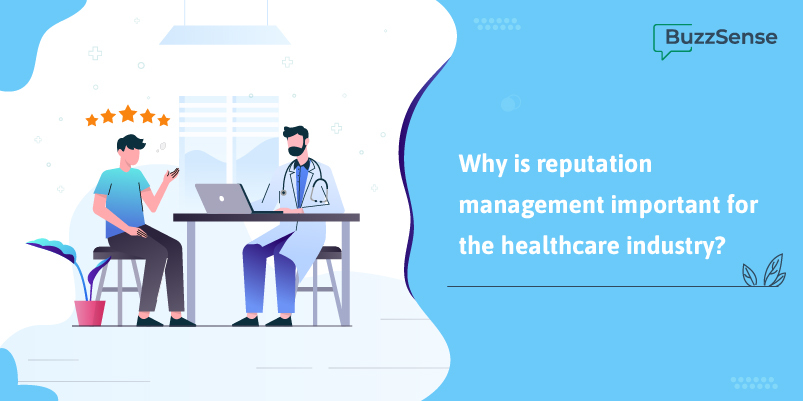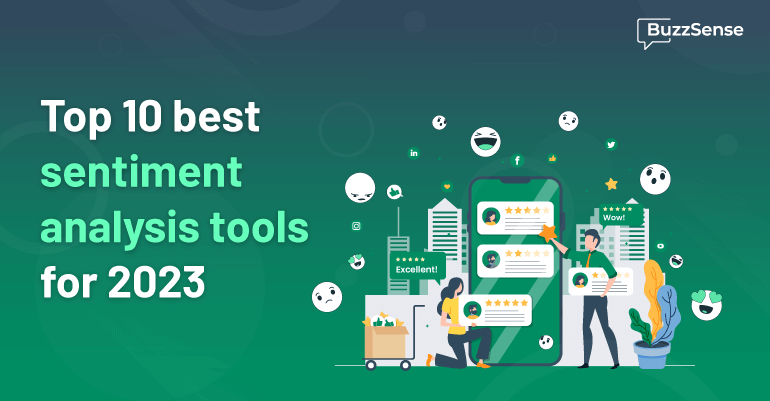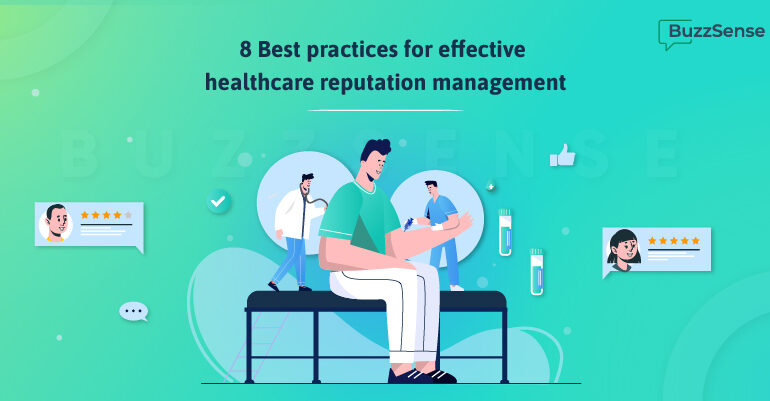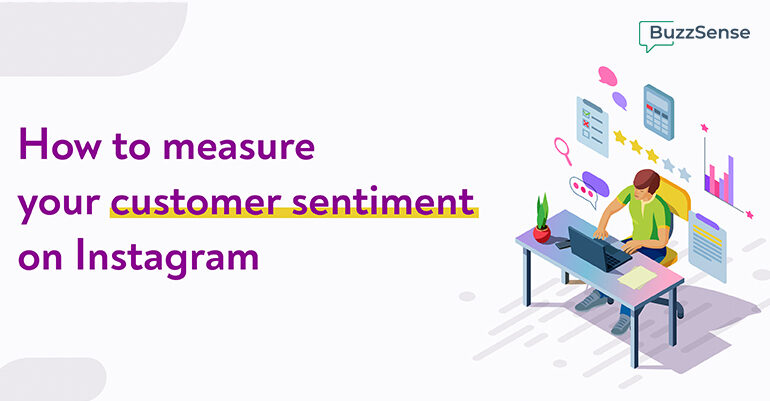Patients visit hospitals in the most vulnerable situations and may opt-out of the healthcare services that are not up to the expectations. Also, healthcare is a vast industry with varied services catering to different requirements of a massive number of patients. More than any other industry, the healthcare industry needs to have its online reputation management on point to ensure that the patients trust it enough to recommend your services to their friends and family.
It is essential to know that healthcare reviews are not just people’s opinions on your medical services. They influence your business’s bottom line and can leave a mark on your brand’s reputation that might take forever to fix.
It is not negligible that 90% of people decide on a hospital based on online reviews and ratings. Besides this, statistics prove why you can’t take your online reputation lightly.
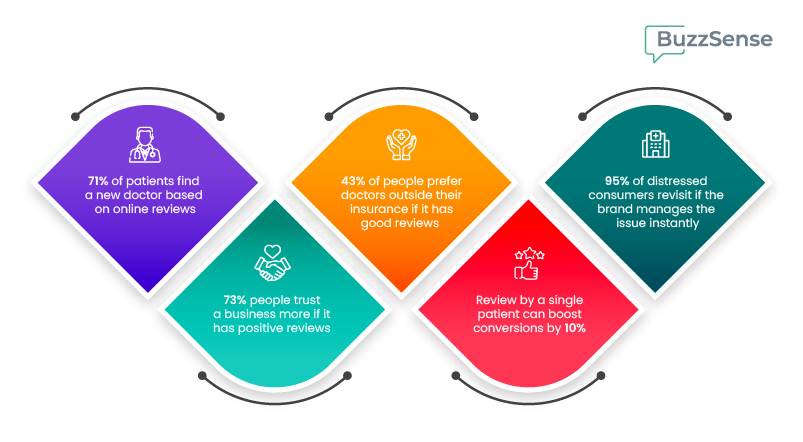
What are the benefits of healthcare brand reputation management?
When done right, online reputation management can build a positive impression of your brand and impact your sales directly. Brand reputation management has many benefits, like some that are listed below.
- Project your medical practice in high standards
- Receive more organic traffic to your online website
- Rank your site high on the search engine result pages
- Build trust among your pharmacists, patients, and doctors
- Attract investors, sponsors, and new patients
- Deploy top surgeons for modern treatments without struggle
How to manage your online reputation?
Review management – how can it help?
Send out direct messages or emails requesting them to rate you on Google or other review sites where your medical practice is listed. But remember to ask after the payment formalities or when you’re sure they might be a little less occupied. It is always best to pitch your request when the patient is at the peak of satisfaction.
While going fully social, use a social media analytics platform to understand your audience’s engagement time and duration. Then draft your survey forms and review request messages to go out at the right times to get optimum results.

No matter how small your customer base is, keep track of all your actions in a social analytics dashboard like time of review sent, how long it took them to revert, how many of your requests were read, and anything and everything. You will have to look at this when you repeat the action for the next batch.
Never think of negative reviews as something that might ruin your reputation. Consider it a chance to show your efficiency in handling the worst crisis in the smoothest possible way. Remember that everyone – your past patients, new people looking for a healthcare service, and the existing clients will be watching how you take criticisms and how much you value their comments.
How should you respond to negative feedback?
- Be confident, professional, and polite
- Show that your patients’ opinions matter
- Don’t try to make any false claims
- Give them an empathetic answer
- Own your mistake and assure them best practices
What is user-generated content, and how to utilize it?
UGC is any unpaid or unsponsored content that your end-users generate about your products, services, or solutions. These contents can be in any form across the digital space.
For example, your patients may share their experience with your medical practice on social media, write testimonials, publish blogs post-recovery videos, answer questions on forums about your healthcare practice or support a case study. Displaying these contents on your website or social handles is a great way to earn your patients’ trust.
User-generated content may not always explicitly mention your healthcare brand or the services that you provide. It can be about how the patient’s lifestyle changed after they visited you, the value you delivered to them, and more.

By using UGC marketing, you can let your clients speak for you and have the real users promote your medical practice rather than another brand. You are influencing non-clients to be your clients in the future and at the same time acknowledging the effort of the people who contribute to your brand’s growth.
How to use user generated content?
- Create social proof and earn the trust
- Increase brand awareness
- Answer FAQs with a UGC
- Increase authenticity and brand loyalty
- Influence clients to utilize your services
How do social listening and sentiment analysis help?
Through social listening, you can monitor the digital space to find mentions, comments, or tags about your brand. Sentiment analysis helps you understand whether your clients have a positive, negative, or neutral opinion related to your brand.
These two crucial aspects of online reputation management help brands monitor, manage and stay up-to-date on all the brand mentions. You can steer your medical practice in the right direction with insights into how people connect with your brand sentimentally.

For example, your patients may like your practice and have a favorable opinion about your services but a negative opinion on the pricing. You can change your pricing strategies to retain your old patients and attract new clients with detailed social insights.
A sudden spike in brand mentions may be good or bad, and you can’t be sure of it until you’ve done proper sentiment analysis. In such a case, you can identify reputation threats before they spread like wildfire and become irreparable.
How to use sentiment analysis for reputation management?
- Gather mentions from as many sources as possible
- Segregate comments based on sentiments
- Prioritize top influential accounts first
- Don’t underestimate individual comments
- Keep an eye on your competitors
How does a reputation management tool work?
A reputation management tool helps track your healthcare reviews, comments, and brand mentions and gives you custom alerts for all social channels. It also helps bring your digital goals in alignment with your financial goals by giving you insights into patient sentiment, engagement, social performance, etc.
Besides that, you can reply to social comments posted across different platforms using a unified dashboard and draft custom marketing strategies for current trends based on historical data of your social performance.
Instead of manually distributing user-generated content and social media posts across various social handles, a reputation management tool can help you automate the action and target the right set of clients. Also, you can draft personalized survey forms to send out to your patients, asking them for reviews and opinions to optimize your services to increase the client base.
BuzzSense is an online reputation management platform that helps brands and individuals monitor the digital space to maintain an evident reputation. It supports competitor benchmarking, an aspect that will help your healthcare practice stay a notch ahead. Request a demo today to start managing your online reputation with ease using BuzzSense.

